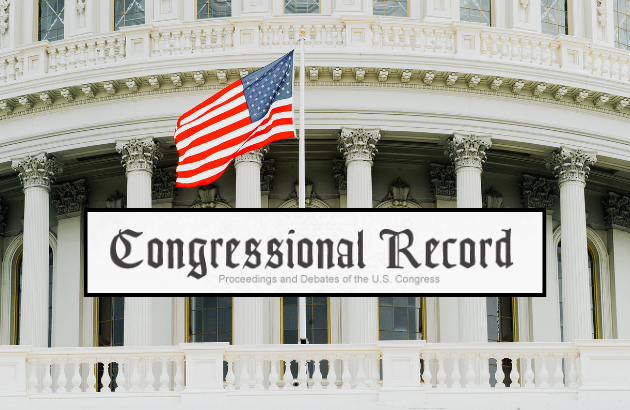Blog
The Flag, the National Anthem, and the First Amendment
This article is republished with permission by W.S. Hein. View the original article here.
In 2016, then-49ers quarterback Colin Kaepernick began kneeling during the national anthem to protest racial injustice, particularly the killing of black Americans by police. During a campaign-style rally in Alabama this past September, President Trump denounced the kneeling protests and proclaimed that any players who refused to stand during the anthem should be fired. After Trump’s comments, hundreds of players joined the protest and the NFL promoted the message that it was unified. Several owners released statements criticizing the president’s comments and some locked arms with their players during the anthem. While some people support the protests, others feel it is disrespectful to the flag and the anthem. Let’s take a look at what resources HeinOnline contains in regards to this controversial topic.
The U.S. Code
HeinOnline’s U.S. Code database includes complete coverage of the United States Code back to its inception in 1925. The United States Code is the official consolidation and codification of all general and permanent laws of the United States that are in force as of a certain date.
According to Title 36, section 301, conduct during the national anthem while the flag is displayed includes
- Individuals in uniform should give the military salute at the first note of the anthem and maintain that position all the way through
- Members of the Armed Forces and veterans who are present but not in uniform should also give a military salute
- All other individuals should stand, face the flag, and place their right hand over their heart
- All headdress must be removed, unless used for religious purposes, and held with a person’s right hand over the left shoulder so the hand is covering the heart
Furthermore, Title 4, section 8 is titled Respect for flag and explains how the flag is to be handled. Respect for the flag means:
- The union should never be displayed facing down
- The flag should never be worn
- The flag should not touch the ground
- The flag should never be carried flat or horizontally, but free and aloft
- The flag should never be placed in a manner where it can be easily damaged
- The flag should never be used as a receptacle
- There should be no markings or letters on the flag
- The flag should never be used for advertisement
- No part of the flag should be used as a costume or athletic uniform
- If the flag is no longer a fitting emblem for display, it should be burned
History of the Flag and the Law
In the Supreme Court Library, HeinOnline holds a four-volume set, published by the William S. Hein & Company, which contains the history of the flag and the law up to 1993. Titled Flag and the Law: A Documentary History of the Treatment of the American Flag by the Supreme Court and Congress, this set contains cases, hearings, Senate reports, and House reports which discuss the issues of pride and upholding First Amendment rights.
To find this title, use the Catalog tab found at the top of any database in HeinOnline. Begin typing the title, Flag and the Law: A Documentary History of the Treatment of the American Flag by the Supreme Court and Congress, into the search field and the autofill feature provides the remaining words.
 The beginning of the first volume includes an expanded version of an article that was posted in the New York Times on July 1, 1990 regarding the controversy of defining patriotism.
The beginning of the first volume includes an expanded version of an article that was posted in the New York Times on July 1, 1990 regarding the controversy of defining patriotism.

Many of the documents in this set reference burning of the flag, which dates back to 1907 and became more relevant during protests of the Vietnam War. Furthermore, it contains the 1989 case Texas v. Johnson, which ruled that it is unconstitutional for government to prohibit the desecration of the flag under the protection of the First Amendment. Alternatively, this set contains a multitude of legislative history covering the protection of the flag such as the hearing, Measures to Protect the American Flag.
Law Journal Library Resources
To find additional material on this topic, enter the Law Journal Library and perform a proximity search. For this example, search for the words flag, protest, and law within 20 words of each other. Enter “flag protest law”~20 in the Full Text tab.

Within the results, use the Sort by option and choose Number of Times Cited by Articles.

Notice the first result, Flag Desecration: A Case Study in the Roles of Categorization and Balancing the First Amendment Analysis has been cited by nearly 700 articles and 30 cases. This article has also been cited by the American Law Institute. These HeinOnline ScholarCheck links allow the user to view all of these options to further their research.
Users can also use the Keyword Search Builder found in the Advanced Search option of the Law Journal Library. For this type of search, plug in certain words pertaining to your research topic. For this example we will search for the words first, amendment, protest, and flag. Adjust the weight of each word and click submit.

Within the results, use the Sort by option and choose Number of Times Cited by Articles.
Let’s now take a look at athletes and the law. Enter the Law Journal Library and browse by Subject. Within this list, find Sports Law. Find DePaul Journal of Sports Law & Contemporary Problems. Expand volume 13 to find a more recent article added to HeinOnline regarding athletes and the First Amendment titled The Gray Problem: Should Athletes Be Punished for Their Social Media Posts.





